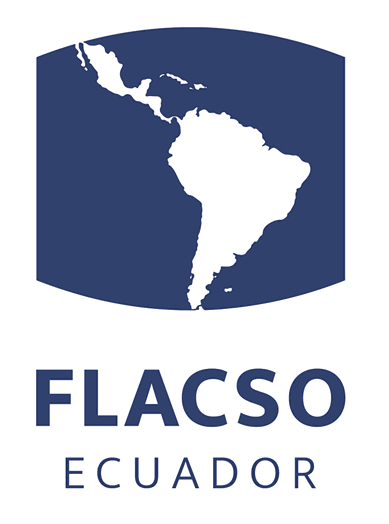Por favor, use este identificador para citar o enlazar este ítem:
http://hdl.handle.net/10469/3024Registro completo de metadatos
| Campo DC | Valor | Lengua/Idioma |
|---|---|---|
| dc.creator | Rodríguez Blanco, Maricel | - |
| dc.date | 2011-05 | - |
| dc.date.accessioned | 2011-06-23T22:18:59Z | - |
| dc.date.available | 2011-06-23T22:18:59Z | - |
| dc.identifier.citation | Rodríguez Blanco, Maricel. Participación ciudadana no institucionalizada, protesta y democracia en Argentina (Dossier) = Non-institutionalized citizen participation, protest and democracy in Argentina. En: Íconos: revista de ciencias sociales. Nuevas instituciones participativas y democráticas en América Latina, Quito: FLACSO sede Ecuador, (no. 40, mayo 2011): pp. 89-103. ISSN: 1390-1249 | es_EC |
| dc.identifier.issn | 1390-1249 | - |
| dc.identifier.uri | http://hdl.handle.net/10469/3024 | - |
| dc.description | Desde los años noventa, numerosas acciones colectivas de protesta han expresado el descontento frente a las consecuencias de las reformas del Estado argentino, en particular en aquellas provincias que, presionadas por la urgencia social, revelaron una gran inestabilidad institucional. Este artículo presenta el caso de Tupac Amaru, una organización piquetera de desocupados y trabajadores informales nacida en 1999 en la provincia de Jujuy, como una forma de participación en tensión con los partidos políticos y los sindicatos, y cuya acción de protesta, legitimada por los gobiernos como única forma de canalizar demandas de bienes y servicios, se articulará con una acción de intermediación territorial entorno de la resolución de problemas y la prestación de servicios. | es_EC |
| dc.description | In the 1990s, Argentines have participated in numerous collective protests to express their discontent with the consequences of reforms by the state, especially in provinces where, pressured by social needs, there exists a high level of institutional instability. This article presents the case of Tupac Amaru, a piquetero’s organization of unemployed and informal workers created in 1999 in the province of Jujuy as a way to participate, rather than through political parties and labor unions. The protest actions of the piqueteros, legitimized by governments as the only way to channel demands for goods and services, would be articulated with actions of territorial intermediation around the resolution of problems and the availability of services. | es_EC |
| dc.format | p. 89-103 | es_EC |
| dc.language | spa | es_EC |
| dc.publisher | Quito : FLACSO Sede Ecuador | es_EC |
| dc.subject | PARTICIPACIÓN CIUDADANA | es_EC |
| dc.subject | PROTESTAS SOCIALES | es_EC |
| dc.subject | PIQUETEROS | es_EC |
| dc.subject | JUJUY (ARGENTINA) | es_EC |
| dc.subject | ARGENTINA | es_EC |
| dc.subject | DEMOCRACIA | es_EC |
| dc.title | Participación ciudadana no institucionalizada, protesta y democracia en Argentina | es_EC |
| dc.title.alternative | Non-institutionalized citizen participation, protest and democracy in Argentina | es_EC |
| dc.type | article | es_ES |
| dc.tipo.spa | Artículo | es_EC |
| Aparece en las colecciones: | Revista Iconos No. 40, mayo 2011 | |
Archivos en este ítem:
| Archivo | Descripción | Tamaño | Formato | |
|---|---|---|---|---|
| RFLACSO-I40-06.pdf | 146,33 kB | Adobe PDF |  Visualizar/Abrir |
Todos los ítems de FLACSO se distribuyen bajo licencia CREATIVE COMMONS.


